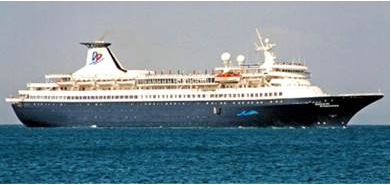The international shipping industry plays a major role in carrying the majority of world trade. In fact, over ninety percent of the global business is influenced by shipping and without it the export and import of goods on the scale required for the present world would not be possible. Seaborne business continues to expand, offering benefits for consumers all over the world through decreasing and low freight costs.
Thanks to the rising efficiency of shipping as a means of transport and improved economic liberalization, the prospect for the further industrial growth continues to be strong. There are about 50,000 merchant ships trading globally, transporting all kinds of cargo. The world fleet is registered in around than 150 nations, and manned by more than a million seafarers of every nationality virtually.
Types of Brokerage
Following are some of the types that ship brokers work for:
Ship owners appoint owners brokers in order to secure cargo charters or vessel for their vessels. Their main purpose is to protect and favor the owner by negotiating the best revenue and terms.
Charterers brokers act under the instruction of the charterer and are expected to negotiate and circulate his order of tonnage to protect the most approving fixture for the cargo interests.
Independent brokers offer their services to both charterers and owners on a no win-no fee basis.
Purchase and sale brokers buy or sell second hand or new tonnage by representing one party in a deal.
Role of Ship Brokers
Ship brokers and agents come in different shapes and sizes. From the international marine service providers with representatives in all the major ports as well as small family run concerns worldwide, the role of the leading ship brokering company lies in representing the interests of the ship owner or charterer while the vessel is in port through offering assistance or advice required.
Ship agents also handle ship broking activity, but actually the responsibility of the ship broker is to work as an intermediary between the ship owner or charterer or the sellers and buyers of cruise vessels and fast passenger ferries for sale. There are various stages of a deal in which the broker needs to be involved in terms of presenting the business to prospective clients, negotiating the key terms of a sale or contract, finalizing the details of the contract and closing the deal. Ship brokers also offer their clients a wide range of market advice and intelligence.


